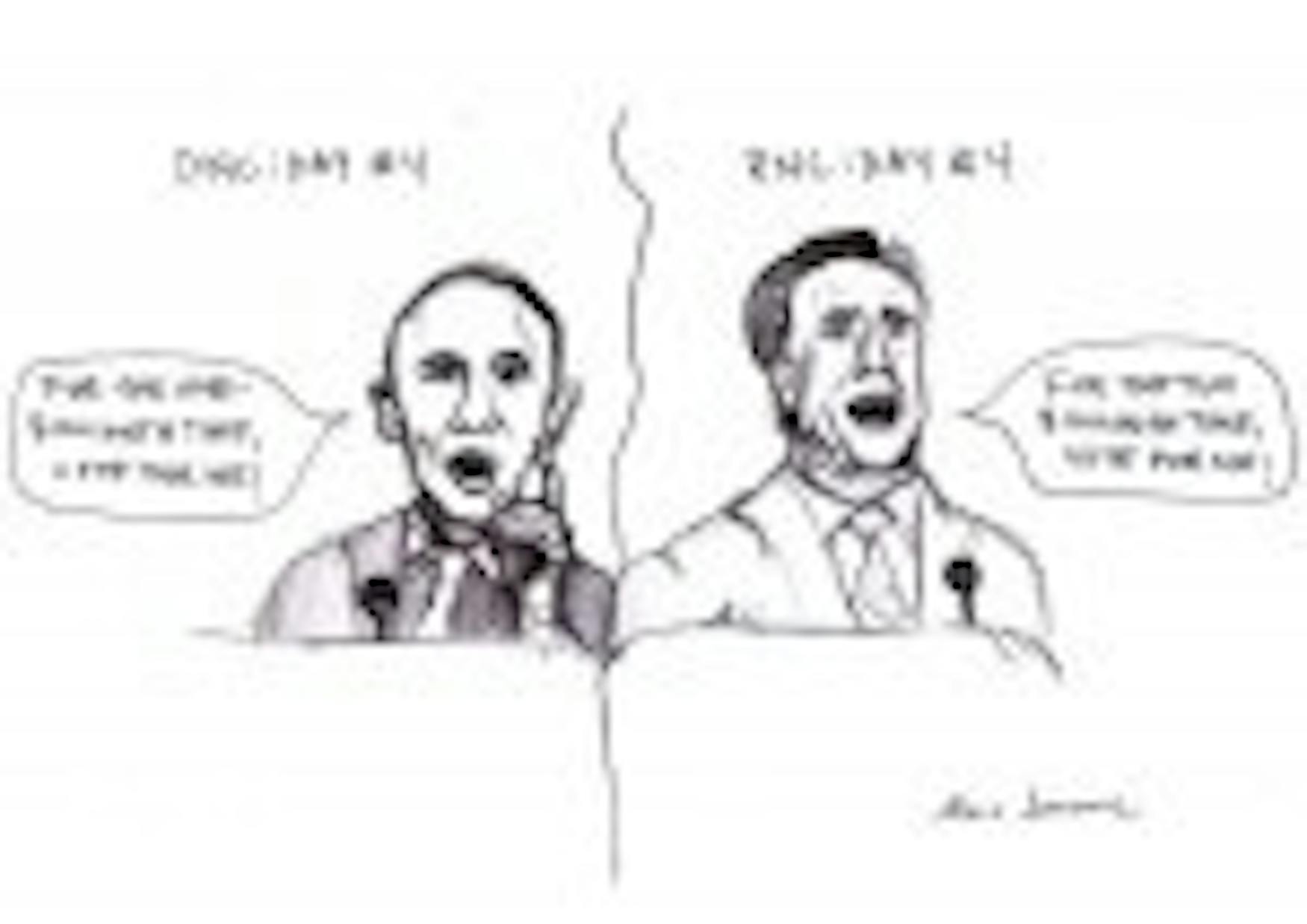Modern conventions devolve into waste of time
Political party conventions used to hold actual meaning. Party leaders sat in the proverbial smoke-filled backrooms and did what they were sent there to do-nominate candidates. With the introduction of extensive primaries and caucuses, the all-important power of choice has shifted from the party bosses to the people. With both the Republican and Democratic National conventions taking place in the past two weeks, we can look back and see the truth. Conventions as they are now are expensive, do not create any real news and may not be necessary.
In today's fast-paced, communication-frenzied world, party conventions are no longer secretive and contain none of the backroom dealing that they used to. A party's nominee is known well in advance. Moreover, modern conventions lack any sort of surprise-Clint Eastwood's now infamous speech at the Republican National Convention aside-and voters have come to see conventions as nothing more than four-day-long infomercials.
According to a Pew Research Center poll, the public paid far less attention to this year's Republican National Convention than it did to the convention four years ago. Only 37 percent of Americans said they watched all or some of the Republican National Convention, down from 56 percent in 2008.
The same holds true for the Democrats. Former President Bill Clinton's speech drew 1.6 million less viewers compared to the 2008 Democratic National convention.
Even more importantly, portions of the money used to fund the conventions come not from the parties themselves, but from Congress. According to an investigation by Bloomberg News, Congress doled out $136 million to pay for security and other expenses, which can include balloons, signs and even alcohol. This money, which could be used to help advance education or healthcare, is instead being allocated to preserve an unnecessary and archaic nominating system.
Perhaps the parties themselves are also beginning to realize that the conventions may not give their candidates as much of a boost as they once believed. While the standing theory is that after a convention, and the increased media coverage, there will be a rise in the public support, not all recent polls indicate that.
In the immediate days after the Republican National Convention, Republican Presidential candidate Mitt Romney did not see much of a boost to his campaign.
A Gallup tracking poll showed that Romney's support after the convention stood at 46 percent of registered voters, a very slight difference when compared to the 47 percent who supported him in the days before the convention. On the other hand, President and Democratic Presidential candidate Barack Obama did experience a bounce. According to the most recent Gallup daily tracking poll, he gained a four-point lead over Mitt Romney following the convention. The Obama campaign, however, is downplaying the bounce. David Plouffe, a senior adviser to the president, dismissed the polls, saying that the campaign gained "momentum" from the convention but that it "doesn't mean the race is going to change significantly."
Supporters of conventions claim that conventions are not meant only to nominate a candidate, but also to inspire and excite the party base. This is true. Conventions are a way for unknown politicians to rise to national fame.
In 2004, then-Illinois State Senator Barack Obama delivered a remarkable keynote address that catapulted him onto the national stage. There has been much speculation around the future career of 37-year-old San Antonio Mayor Juli??n Castro, who delivered the keynote address at this year's Democratic National Convention. While it is true that the conventions are launching pads for up-and-coming politicians, there is no reason that the convention needs to be four days long.
This ties into a solution that isn't too radical and would be easy to implement. Shortening the conventions by two or three days would not only save taxpayer dollars, it would also increase attention and focus. By cutting out long speeches and formalities, the parties could still nominate their candidate and excite voters, without looking as if they are begging for support. It is not unreasonable to expect change for the next election.
Maybe four years from now the parties will realize that it is in their interest, and the nation's interest, to shorten the conventions and spend more time going around the country detailing their policies and connecting with voters.



Please note All comments are eligible for publication in The Justice.